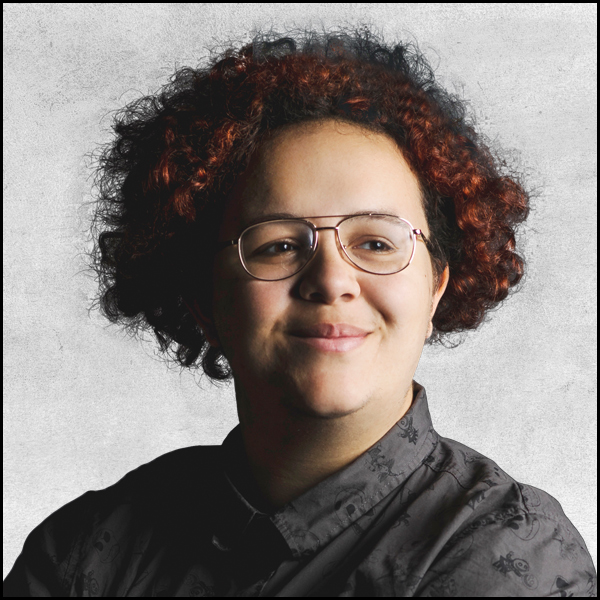The Year at a Glance
THE UNIVERSITY OF IOWA CENTER FOR ADVANCEMENT helps alumni and friends stay connected, get involved, and give back. In fall 2017, the organization was formed by joining the alumni association and foundation to better serve Hawkeyes and strengthen the university through engagement and philanthropy.
Thanks to your steadfast support this past fiscal year (July 1, 2017–June 30, 2018), here's a snapshot of what we've been able to achieve FOR IOWA.
YOU GIVE, STUDENTS GAIN
4,370 UI students received privately funded scholarships this year that gave them access to a top-notch education. Among those scholarships are the John and Patricia Hall Diversity Scholarships that largely support participants in the Tippie Gateway Program.
Since 2015, the Tippie Gateway Program has invited high school juniors from diverse backgrounds to campus for a week to see what it's like to be a business student at Iowa. The free summer experience encourages underrepresented students to consider the possibilities of a UI education—and scholarships such as the one given by the Halls put those dreams within reach.
John Hall (66MBA), founder of Goose Island Beer Company in Chicago, decided to provide UI student scholarships after seeing firsthand the difference education made in the lives of low-income families served through the Erie Neighborhood House in Chicago. He volunteers as a board member for the nonprofit and also serves on the board of Erie Elementary Charter School. "Education has always been very important, but today even more so in that a good education gives individuals the opportunity for a better life," says Hall. "It gives an individual self-confidence and makes one able to be successful in the fast-changing world we live in."
Here are the stories of two students who have benefited from the Halls' generosity— and who decided to study business at Iowa.

Jay Belt
First-year student from Glenwood, Iowa
Business major with an interest in management and marketing
Originally from southwest Iowa, Jay Belt thought the UI might be too far from home until enrolling in the Tippie Gateway Program—where the first-generation college student found friendship, confidence, and community. Says Belt: "It's really cool to be here, but still feel at home."
Belt has since built upon that Hawkeye network first formed in the Tippie Gateway Program through involvement in UI groups such as BizEdge and Iowa Edge that connect underrepresented students, and the Reaching OUT in Business organization and All In living learning community that provide support for LGBTQ+ students.
Belt also works to promote literacy as an undergraduate assistant for the Iowa Reading Research Center—a job that, alongside scholarships, helps pay for college expenses. "I'm looking forward to setting an example for my siblings to look up to," says Belt, who regularly sends home postcards of campus scenes to encourage them to pursue higher education. "I definitely do not come from a background where I'd be able to pay for college alone, so scholarships have given me such a relief to attend school and take myself to the next level without worrying about the expense of it."
With the gift of education, Belt plans to open a small business and promote economic development in Glenwood or become a teacher.

Stephanie Garcia
First-year student from Storm Lake, IowaEconomics major with an interest in fashion
"The Tippie Gateway Program really helped me build connections before I came to college," she says. "It's nice to know someone [on campus] who looks like you and who understands you a little better."
Now wrapping up her first semester at Iowa, Garcia has already received a head start in her business education by participating in the BizEdge mentoring program, joining the Brand You fashion and marketing student organization, and enrolling in a first-year leadership seminar taught by Tippie College of Business professor and associate dean Ken Brown. Garcia hopes one day to parlay these experiences into a career designing apparel.
"I truly believe that fashion is an expression of personality, and that excites me," says Garcia, who has modeled at several fashion shows and keeps a journal of ideas from her favorite fashion magazines. "The artistic and creative energy involved really catches my attention."
Looking forward to a future in fashion, Garcia expresses gratitude for the opportunities she's had at the UI. "All of the scholarships Iowa provided me with were amazing," she says, "and I don't think I could've come here without them."
YOU GIVE, RESEARCH GROWS
This past year, you gave $39.9 million for research. Here's one of your stories.

Jared and Carol Hills
After suffering for years from polycystic kidney disease (PKD)—a chronic genetic disorder that causes cysts to overtake and destroy the kidneys—Jared was in desperate need of a transplant.
Fortunately, he received a kidney donation from his wife's niece in 2007 that, he says, "made a new man out of me."
PKD—which affects nearly one in 1,000 people—currently has no effective treatment or cure, so most patients over time end up in dialysis or with a kidney transplant like Jared. Because of the disease, the Hills' son, Paul (86BGS), has already received a transplant from his son, Hunter. The Hills' daughter, Kari, is on the donor waiting list.
Motivated by their family's personal struggles with PKD to help find new treatments and a cure, Jared (59BSME) and his wife, Carol Tangen Hills (59BSN), of Cedar Rapids, recently established the Jared and Carol Hills Polycystic Kidney Disease Research Fund and the Jared and Carol Hills Professorship in Nephrology at Iowa. The fund and professorship help researchers at the UI Roy J. and Lucille A. Carver College of Medicine combine their talents to explore groundbreaking methods that could potentially stop the disorder. "We have great confidence that the researchers at the University of Iowa can make significant contributions to finding better treatments for a disease that has affected our family," says Carol. "We hope that one day there will be a cure."
Scientists discovered the gene responsible for PKD more than 20 years ago and have since been working to understand why the gene mutation causes the disease. UI researchers believe the key to a cure may lie in gene therapy. "It would be very difficult to carry out this kind of research without private support," says UI Hospitals and Clinics chief of nephrology Chou-Long Huang. "It's difficult to get funding from the government at this early stage of the research, but the Hills' support allows us to look into a very innovative approach."
YOU GIVE, HAWKEYES ENGAGE
The Hawkeye network is 279,000-strong—and growing. Here's where U.S. alumni live.

Join Us
Here are some ways you can stay connected with the University of Iowa:
- INVOLVE Help build the Hawkeye network.
- Volunteer with your local IOWA Club or I-Club.
- Participate in alumni events happening in your city.
- RECONNECT Stay in touch with former professors, classmates, and friends.
- EDUCATE Continue your lifelong relationship with the UI by attending campus events.
- Cheer on the UI's athletics teams.
- Attend a Hancher show or a public lecture.
- Visit the Pentacrest Museums or Stanley Museum of Art with your family.
- ADVANCE Help further the careers of UI students and graduates.
- ADVOCATE Be a champion of the UI within your community and state.
- GIVE Benefit students and programs through your generosity.

BY THE NUMBERS
FISCAL YEAR 2018*
65,862
alumni and friends provided more than
$232 MILLION
in much-needed resources for the university community.
$114 MILLION
has transferred to campus to assist students, faculty, programs, and research.
$1.5 BILLION
has been committed to Iowa's future through the University of Iowa and UI Center for Advancement's combined endowment pool, funded by the generous gifts of donors who wish to make a lasting impact. These gifts are invested in perpetuity to provide the UI with a steady and predictable income stream.
*All figures based on information reported between July 1, 2017, to June 30, 2018.
